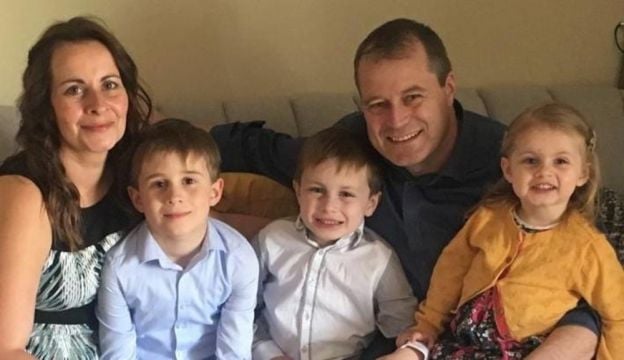The jury in the trial of a woman accused of murdering her three children has resumed its deliberations.
Deirdre Morley, 44, is accused of murdering sons Conor McGinley, nine, and Darragh McGinley, seven, and daughter Carla McGinley, three, by smothering them on at their home on January 24th last year.
The bodies were discovered by their father Andrew McGinley at their home in Parson’s Court, Newcastle, Co Dublin.
Deirdre Morley pleaded not guilty by reason of insanity, a view supported by two consultant psychiatrists, one for the defence and one for the prosecution.
At the Central Criminal Court on Thursday, Justice Paul Coffey sought to provide clarity to the jury on the three criteria for a verdict of not guilty by reason of insanity.
The court heard that once it is established that a person is suffering from a mental disorder there are three possible reasons for such a verdict: that the person did not know what they were doing; that they did not know what they were doing was wrong; or they were unable to refrain from the act.
Justice Coffey said the jury had to consider on the balance of probability whether it was more likely than not that the accused was suffering on one of those grounds.
He said it was important to note these were alternative grounds, not cumulative, and that meeting any one is sufficient for a verdict of not guilty by reason of insanity.
Dr Brenda Wright, a witness for the defence, said the accused was suffering bipolar affective disorder type two, a recognised mental disorder.
Dr Wright told the court she believed the accused met two of the criteria: that she did not know what she was doing was wrong, and that she was unable to refrain from the act.
Justice Coffey noted that this evidence was not challenged by the prosecution.
He said the prosecution had called its own expert witness, Dr Mary Davoren, who independently supported the findings of Dr Wright, and gave evidence that Morley met the same two criteria.
“Accordingly, the expert evidence is all one way” he said.
“The doctors are unanimous in their opinions that the accused was legally insane when she killed her three children.”
He said this was not a case in which the prosecution was seeking a conviction for murder, that it was “free from controversy”, and was open to the special verdict of not guilty by reason of insanity.







